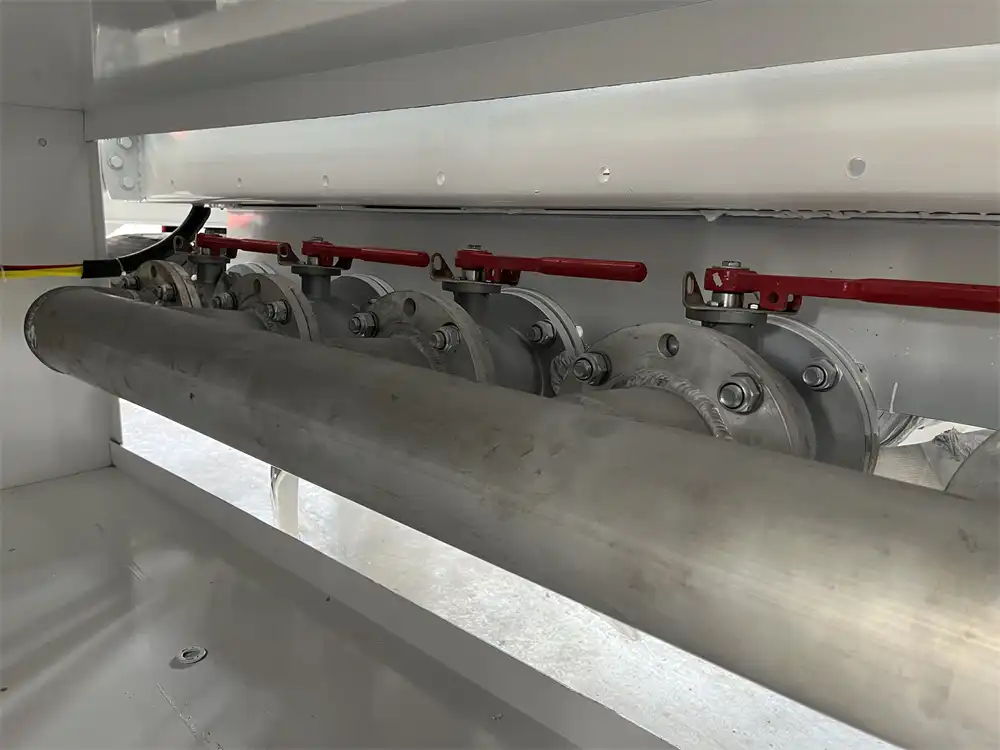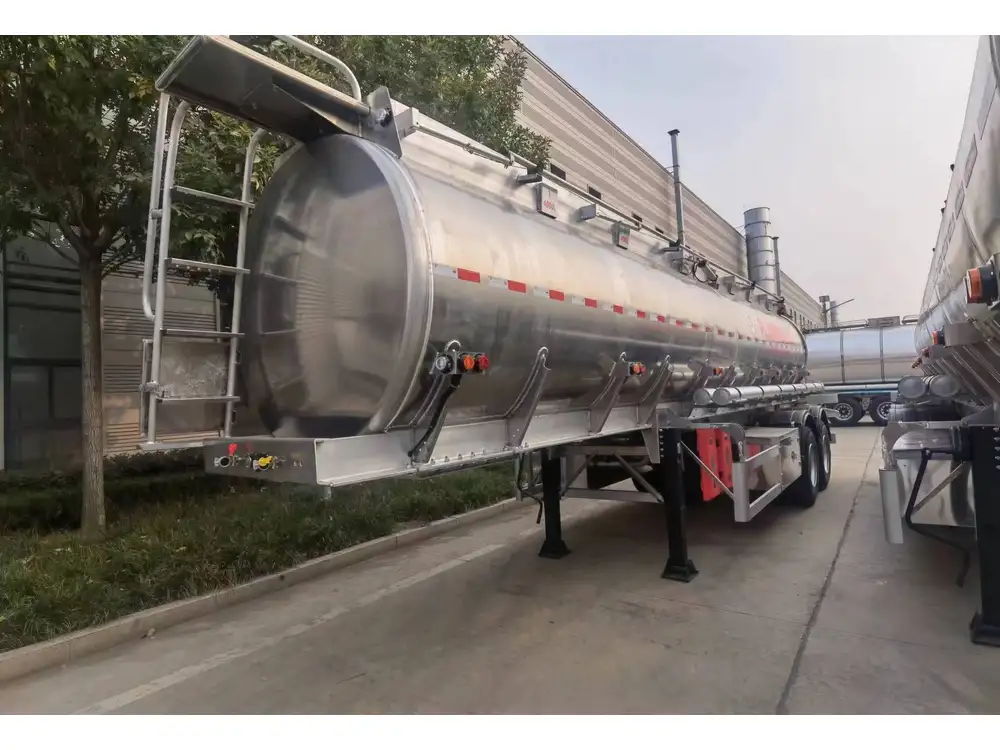In the competitive landscape of the automotive and transportation industry, one vital asset stands out: the tri axle fuel tanker. In Rwanda, where road transportation plays a crucial role in the economy, having reliable fuel transport solutions is essential. This article delves deeply into the nuances of tri axle fuel tankers, their advantages, specifications, and the benefits of choosing CarMax Vehicle as your manufacturer.
Understanding Tri Axle Fuel Tankers
Tri axle fuel tankers are specialized vehicles designed primarily for the transportation of liquid fuels. The configuration of three axles ensures improved stability, greater load capacity, and enhanced maneuverability, particularly when traversing the diverse terrains found throughout Rwanda.
Key Advantages of Tri Axle Fuel Tankers
| Advantage | Description |
|---|---|
| Higher Load Capacity | Tri axle configurations can carry heavier loads, thereby reducing the number of trips. |
| Improved Stability | The distribution of weight across three axles enhances vehicle stability, minimizing the risk of rollover. |
| Enhanced Traction | This design ensures better traction, even on rough or declining roads, which is common in Rwanda. |
| Longer Lifespan | Built with robust materials, tri axle tankers offer durability and longevity, essential in heavy-use scenarios. |
| Better Fuel Efficiency | Optimized designs reduce drag and improve fuel consumption relative to loaded capacity. |

Comprehensive Specifications of Tri Axle Fuel Tankers
Construction Materials
- Chassis: High-strength steel to withstand heavy loads.
- Tank Body: Made from corrosion-resistant aluminum or stainless steel, ensuring the integrity of the liquid fuel it carries.
- Suspension System: Equipped with air or leaf spring suspension systems, offering a smooth ride and reducing wear and tear on roads.
Dimensions and Capacities
| Specification | Dimension/Value |
|---|---|
| Length | Typically ranges from 10 to 12 meters |
| Width | Approx. 2.5 meters |
| Height | About 3.5 meters |
| Maximum Carrying Capacity | From 25,000 liters to 40,000 liters |

Safety Features
- Baffles: Internal baffles to minimize liquid slosh during transit, thereby enhancing stability.
- Compartmentalization: Multiple compartments allow for the transportation of different fuels and reduce the risk of contamination.
- Emergency Valves: Systems that facilitate quick release in case of emergencies, enhancing safety for both the driver and the environment.
Factors Influencing Your Decision to Purchase
Cost Considerations
Understanding the overall cost of ownership is crucial when acquiring a tri axle fuel tanker. While the initial price can vary, consider the following long-term costs:
- Maintenance: Routine inspections and part replacements.
- Fuel Efficiency: A well-made tanker can significantly reduce fuel costs over time.
- Insurance: Coverage levels can affect overall expenditure.

Regulatory Compliance
Investing in tri axle fuel tankers that comply with Rwanda’s regulatory frameworks ensures smooth operation. Regulations often include specifications for safety features, environmental control measures, and licensing requirements.
Why Choose CarMax Vehicle?
As a market leader in the manufacture of quality semi-trailers and fuel tankers, CarMax Vehicle stands out in several ways:
Quality Assurance
At CarMax Vehicle, we take pride in our rigorous manufacturing standards. Our fuel tankers undergo extensive quality control checks, ensuring each unit meets both domestic and international safety standards.

Customization Options
We offer myriad customization opportunities, allowing clients to specify dimensions, tank capacities, and supplementary features tailored to their unique business needs.
After-Sales Support
Our commitment to customer satisfaction extends beyond purchase. We provide comprehensive after-sales support, ensuring customers receive assistance with maintenance, repairs, and any technical inquiries.
Competitive Pricing
By providing high-quality products at competitive prices, we cater to businesses seeking efficient and economical transport solutions without sacrificing quality.

Maintaining Your Tri Axle Fuel Tanker
To ensure the longevity and efficiency of your tri axle fuel tanker, it is essential to adhere to a strict maintenance schedule:
Daily Checks
- Tire Inspections: Check for wear and proper inflation.
- Fluid Levels: Monitor engine oil, hydraulic fluid, and coolant levels.
- Exterior Condition: Look for signs of corrosion or damage.
Periodic Maintenance
| Maintenance Task | Frequency |
|---|---|
| Oil Changes | Every 10,000 km |
| Brake Inspections | Every 5,000 km |
| Tank Integrity Tests | Annually |
| Suspension Checks | Semi-annually |

Conclusion
Tri axle fuel tankers are an indispensable component for businesses focused on fuel distribution in Rwanda. Their superior capacity, stability, and efficiency make them a long-term investment decision worth considering. With CarMax Vehicle, clients gain access to high-quality products, customization options, and dedicated after-sales support.
The road ahead in Rwanda’s fuel transportation sector is bright, and we urge businesses to equip themselves with the best tools available. Contact us today to discuss how our tri axle fuel tankers can revolutionize your operations.
FAQs
1. What is the average lifespan of a tri axle fuel tanker?
The average lifespan of a well-maintained tri axle fuel tanker typically ranges from 10 to 15 years, depending on usage and maintenance practices.

2. How do I ensure compliance with Rwandan regulations for fuel transport?
It is advisable to stay updated with Rwanda’s transport regulations and ensure your tanker is equipped with all necessary safety features, emergency protocols, and is licensed according to government standards.
3. Can I customize the tank capacity of my tri axle fuel tanker?
Yes, at CarMax Vehicle, we offer various customization options to meet your operational requirements, including custom tank sizes, configurations, and additional features.
4. What are common maintenance tasks for tri axle fuel tankers?
Common maintenance tasks include daily inspections of tires and fluids, periodic oil changes, brake inspections, and tank integrity assessments to ensure continued safety and efficiency.












Reviews
There are no reviews yet.